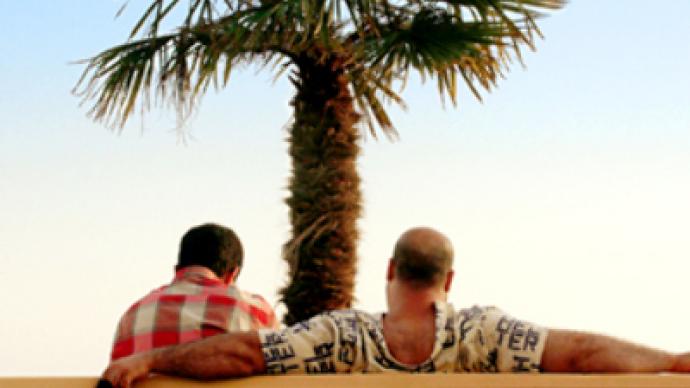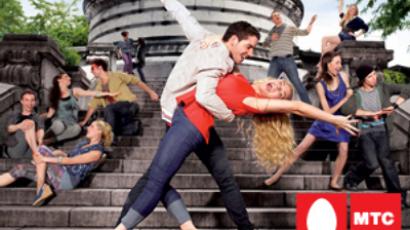Summer sees Russians taking their holidays with value for money in mind

Summer sees Russians still taking up their holidays, despite the economic downturn, but less cash going around means there are some slight changes in the way they are heading off this year.
With the economy still in the grip of a major slowdown and with the Rouble worth about 30% less than it was in summer 2008, it would be expected that tourism would be taking a fair hit. But the urge to seek an escape from grim economic news is still seeing Russians heading off in large numbers.
As in previous years Turkey remains a popular favorite for Russians looking to get some time in the sun. Mikhail Lapshin, Commercial Director at Natalie tours, says that in general demand is remaining strong for the more affluent and that it’s slightly downmarket which is bearing the brunt of the downturn.
“Today Turkey remains an absolute leader, as prices are competitive and it has quite a good reputation. And people now don’t want to make experiments at all. Surprisingly enough, the top expensive destinations, like Thailand, Emirates, Dominican Republic and Spain’s most expensive Tenerife, have been the great performers, with tickets sold about month and a half in advance. It shows that affluent clients don’t economize on their leisure time and, actually, that “golden mean”, I mean middle class – 3 or 4 star – hotels, bear the main brunt of the crisis.”
Svetlana Drozdova, Deputy Director at the Neva tour company is seeing a similar trend with Turkey topping the list, but with an interesting observation on how Russians are scheduling their holidays in the face of the crisis.
“Here again nothing changed that significantly, with Turkey and Bulgaria remaining the most preferred places of interest. And a new tendency appeared in crisis times: people today choose to have longer holidays but less often. If before the crisis they had a rest, say, twice a year, but for some 7 or 10 days, then now people go to the seaside once a year but at least for 14 days.”
Drozdova adds that no destination in particular has been hit, and that although tourist numbers are down significantly the downturn is spread across the board.
“I wouldn’t say there is one particular destination that suffered the most. An overall downturn in the tourist market was 30% year on year, but this drop was spread among a number of locations.”
Lapshin, however is seeing a marked downturn in one particular Ibiza, long seen as the place to be seen for Russia’s well to do young.
“Spain’s Ibiza, the favorite place of the so called “golden youth”, Majorca and Italy’s Sicily have seen the biggest drop. As for Ibiza, I suppose, less pocket money for those careless youngsters has affected sales, and explosions on Majorca coupled with Onishenko’s warnings sharply reduced the demand. The demand for Sicily itself was quite artificial and in the crisis has absolutely fallen.”
But if the golden youth aren’t making their way to Ibiza with as much gusto as they have in recent years, the rest of Spain is still retaining much its popularity with Russians, and particularly Muscovites, despite distance, and warnings about the latest influenza breakout there. Russians tours to the country are down no more than overall tourist numbers.
“Despite all Onishenko’s warnings about the H1N1 danger, Spain remains a most popular destination, as it can really satisfy any demand, including the most sophisticated. Here one can choose from various climatic zones, living conditions, there are 7 airports of entry! All in all, around 25-30% less people go to Spain now, but our company managed to keep the sales in Moscow at about the same level as last year, facing a slight drop of about 3 – 4%. Regions suffered much more, and in some places like Novosibirsk, for example, we halted charters at all.”
Svetlana Drozdova from Neva is also seeing some upside for short trips, often to Scandinavian nations, with the need to remain in contact for work being a factor.
“Short trips for some 3 or 4 days to Scandinavia countries are becoming more popular. People today tend to prefer short tours somewhere nearby their homes, in case they have to return to work, I think. Sales of such trips rose 45% since autumn 2008, which is pretty much.”
One thing she isn’t seeing however is any greater interest in planning holidays at home in Russia. She says that tighter budgets and a comparison of the value for money local destinations offer in comparison with their international counterparts has driven local destinations some way down the line in terms of interest.
“The demand for destinations in Russia has almost died. The reason is obvious: people just have become more economical and want to get good quality for the money they pay, and everybody knows that Krasnodar’s resorts leave much to be desired both in terms of quality and costs. The price for a trip to a Russian resort is almost the same as for that abroad but one will spend much more for his personal needs in Russia than somewhere else. And don’t forget about transfer costs, which have become much higher since the beginning of the crisis. If before August 2008 people traveled very much, creating excessive demand for flights and thus forcing air carriers to dump, now they offer mostly regular flights, which on average cost 80 thousand Roubles to one end. The same is for excursions around Russia, to places like Vladimir or Suzdal, for example. If winter last year saw a boost of 35 – 40% in such trips, then today it’s also completely down. And again, cost – conscious people would rather pay some 12 thousand Roubles for a trip to Bulgaria than spend from 5 to 7 thousand Roubles on an average two – day tour around Russia. People just count their money, and that’s it.”













